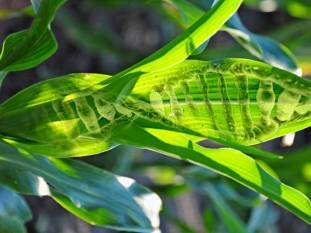NEW DELHI, 28 January 2022: Agriculture is not only the main occupation for about 45 percent of the global population but the only means of livelihood for many. Its integral not only to rural economy but also to our culture and traditions. Even though agriculture feeds and clothes the world, in its current form it is not a very sustainable activity.
It accounts for about 26 percent of the arable land use and 70 percent of the freshwater usage globally. It is estimated that global agriculture production has to be increased by about 60-70 percent from the current levels to meet the increased food demand in 2050, including the demand for feed as well as biofuels.
Currently, estimated 55 percent of global population resides in urban areas, this is expected to increase to about 70 percent by 2050 and would impact food production and consumption.
The most devastating challenge for agriculture is climate change, not only is the unpredictable weather impacting crop yields but also limiting the natural resources. There has been an estimated 5 percent decline in yields per decade as a result of heat, weather volatility, drought, severe weather and flooding all brought on by global warming. Intensive farming and poor farm practices have deteriorated the health of soil and water bodies.
In the past 40 years, about one-third of the arable land has been threatened by erosion and degrading soil health. Unscrupulous destruction of natural habitats has increased the pest and disease pressure. Farmers and plant breeders are addressing these issues by adopting sustainable practices and improving crop seeds respectively as increasing crop productivity in a sustainable manner seems to be the only way to achieve food security.
Given the timelines involved in developing better seed varieties, breeders need to plan for improved traits, years in advance. The breeder’s foresight is being severely challenged by the current and anticipated struggles in agriculture. Therefore, they are relying on their deep knowledge of the crop along with modern technology to achieve the required trait improvements at a faster pace.
New breeding technologies like gene editing are contributing towards the efficiency of breeding. Gene editing involves minor changes in the plant’s genome without introduction of any foreign gene. Since the editing machinery too is provided in trans, it can be bred out, making the final product similar to the one obtained by conventional breeding after multiple crosses and generations.
The precision and pace at which we can make the improvement makes the technology quite cost effective too. Given the compact scale of the gene editing based breeding, it requires minimal upfront investment, making it attractive for public sector institutions, smaller companies and start-ups to leverage it and develop improved crops.
The wide accessibility of the technology will allow its use in improving varied small and niche crops relevant locally, adding more crops to our plate and nutritional security. Though this advantage can be overturned if the gene edited plants are not considered similar to conventionally bred one and distinct from GM crops.
Gene editing due to its precision, ease of application and potential can contribute towards increased crop productivity, food & nutritional security, lowering agriculture’s environmental footprint and achieving United Nation’s Sustainable Development Goals.
The accelerated research and crop improvement will not only benefit farmers and food security but also others involved in agri value chain as well as consumers.
Conducive policy environment will help in trade and wider distribution of the fruits of the technology to consumers especially the vulnerable groups. Breeders in India too are favourable towards the technology and look forward to a science based, reasonable regulation for gene editing in crop.
This article is written by Dr Ratna Kumria, Director Biotechnology – Alliance for Agri Innovation
Image credit: dtnpf.com




















